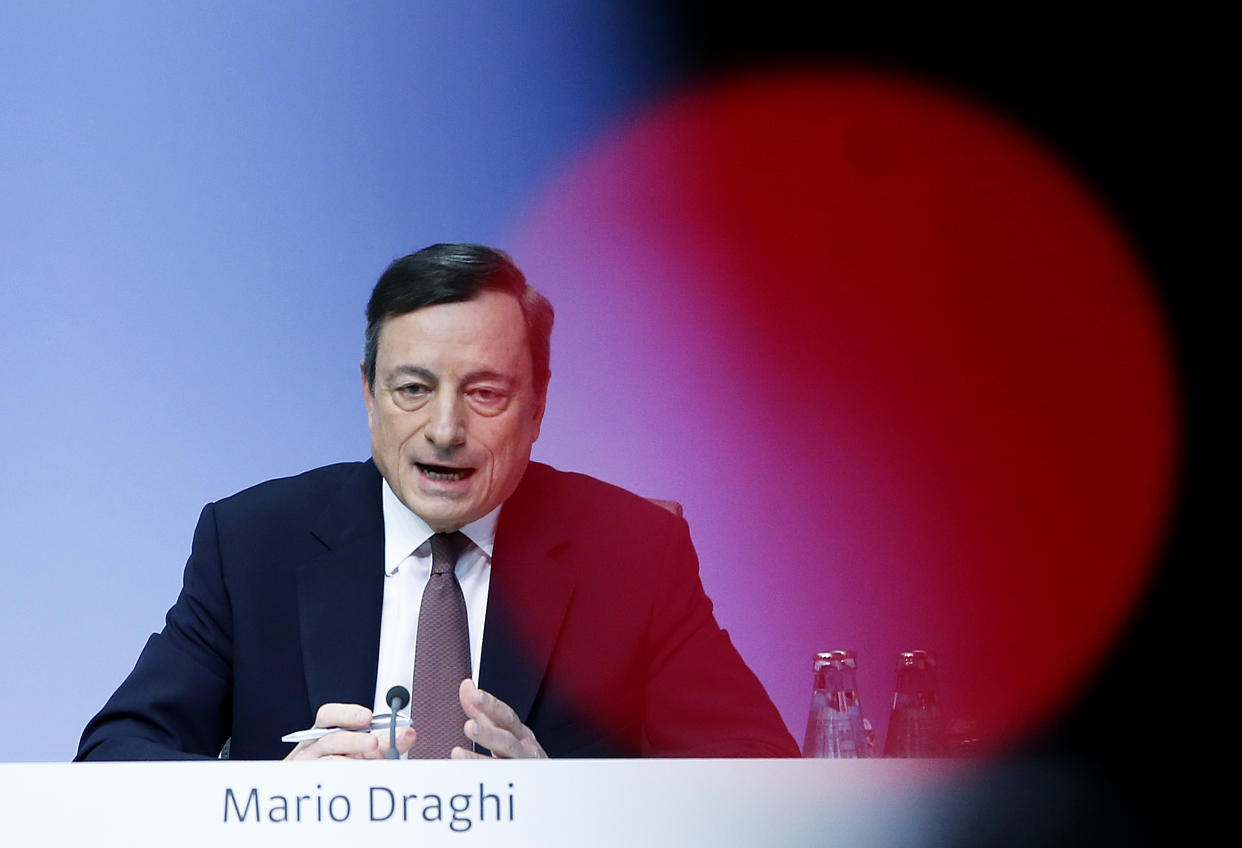The U.S. bond market sell-off originated in Europe

The sell-off in the U.S. bond market appears to have been sparked in Europe, reminding us just how interconnected the global financial markets really are.
European Central Bank president Mario Draghi’s comments about normalizing monetary policy put pressure on bonds, sending prices lower and yields, according to Deutsche Bank’s chief international economist Torsten Slok.
For a while, money flowed from Europe into the U.S. bond market, where yields have been relatively high.
“There are a lot of money managers in Europe that have been facing negative interest rates, making investors forced to buy U.S. assets,” Slok said to Yahoo Finance.
But now that trend appears to be reversing with central bankers everywhere getting a bit more hawkish, signaling even higher rates.
Draghi’s push for rate hikes were echoed by Bank of England Governor Mark Carney who emphasized the message further.
Stock market implications
This is not just about money flowing out of the U.S. bond market. Slok argues that this could be a threat to the U.S. stock market.
“Once interest rates lift from negative territory, some of that demand for US equities may wane,” Slok told Yahoo Finance.
The rise in 10-year yields over the past week, shown in the chart below (which is accompanied by a sell-off in bond prices), has caught the attention of many analysts, particularly as it deviates by the drift down in yields we have seen this year.

Concerns about a bond rout impacted tech stocks in particular, which had been surging in a low interesting rate environment and helping to buoy the overall stock market.
“It’s really peculiar that Draghi can have such an impact on tech stocks and US equities, but that shows you just how interconnected we are,” Slok added.
The recent bond sell-off and corresponding rise in the ten-year yield is a sign that investors are really starting to think hard about whether interest rates will stay low.
And you can be sure central bankers are watching the reaction of asset classes to their comments, as demonstrated when ECB officials tried to recalibrate their message on stimulus following a dramatic market reaction to Draghi’s initial comments.
“This shows just how much they are trying to micromanage market reaction,” Slok said.
Ultimately, the big question is how much of an impact rates will have on the equity markets going forward.
“We see risk to the bond market and because of that we see risk to equities too,” according to Renaissance Macro’s Neil Dutta. “After all, so much of the appreciation in stock prices this year is the result of an earnings recovery being reinforced by lower Treasury yields. We believe in the earnings story, but expect a headwind from rates.”
Nicole Sinclair is markets correspondent at Yahoo Finance.
Please also see:
The financial crisis is over
Private companies ready for IPO just got a major warning
Why investors are suddenly gaga over America’s struggling rental car companies
Dan Loeb’s Nestle stake brings attention to the evolving packaged goods business


